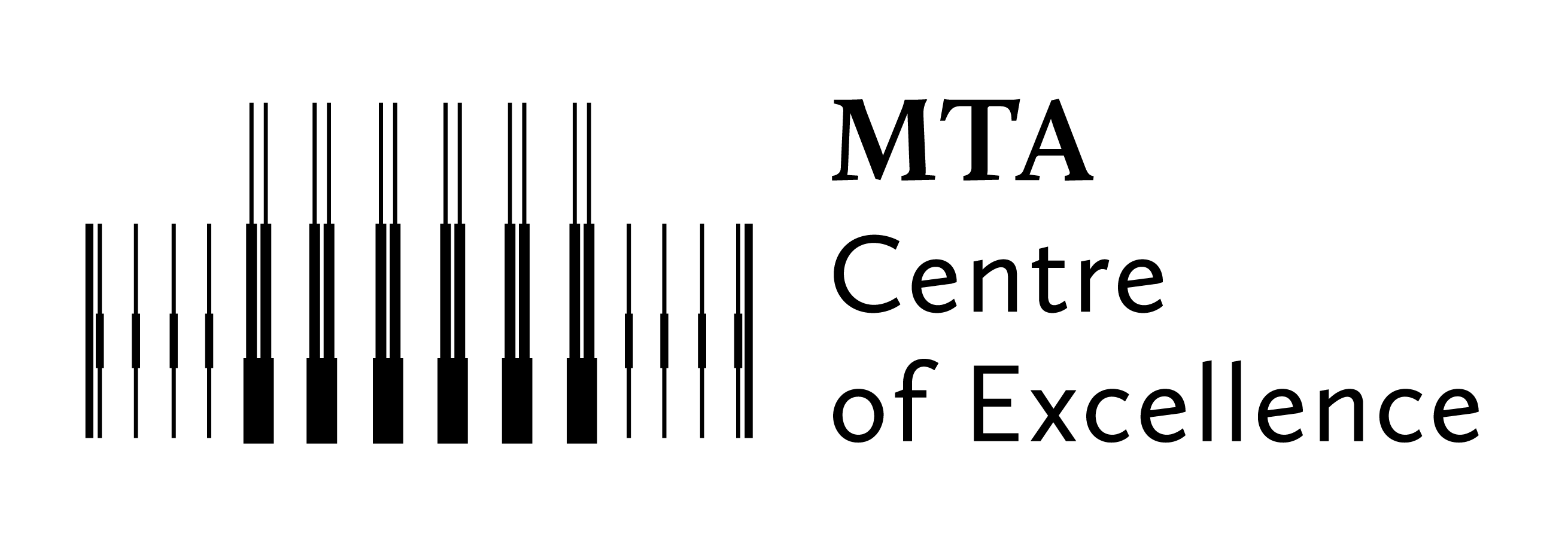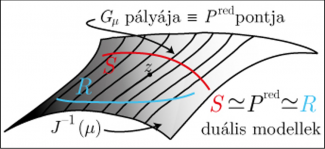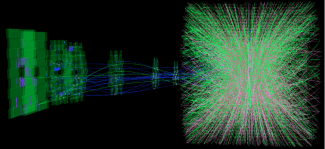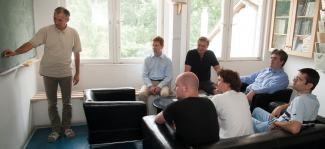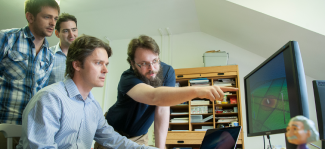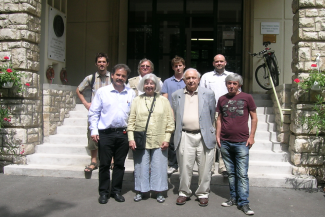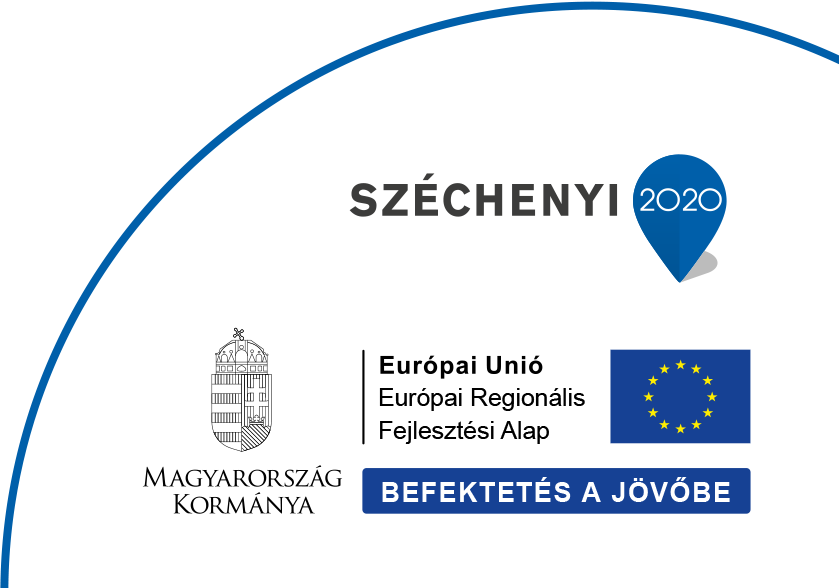Theoretical Physics
Theoretical Physics
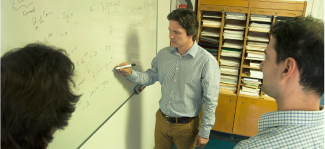 Department leader
György Wolf
Department leader
György Wolf
The mission of the Department of the Theoretical Physics is the theoretical investigation of the fundamental questions of nature. There are three major research areas at the department: quantum field theory, particle and heavy ion physics and gravitation. Part of the research is directly related to ongoing experiments of heavy ions, particle physics (LHC, RHIC) and gravitational wave detection (VIRGO).
The list of current research topics includes the following: phenomenological and theoretical study on relativistic heavy ion collisions; non-extensive thermodynamics; integrable classical and quantum field theories; quantum symmetries; extended objects in field theories; analytical and numerical studies of Einstein’s equations, problems related to gravitational wave detection.
Theoretical Physics

The mission of the Department of the Theoretical Physics is the theoretical investigation of the fundamental questions of nature. There are three major research areas at the department: quantum field theory, particle and heavy ion physics and gravitation. Part of the research is directly related to ongoing experiments of heavy ions, particle physics (LHC, RHIC) and gravitational wave detection (VIRGO).
The list of current research topics includes the following: phenomenological and theoretical study on relativistic heavy ion collisions; non-extensive thermodynamics; integrable classical and quantum field theories; quantum symmetries; extended objects in field theories; analytical and numerical studies of Einstein’s equations, problems related to gravitational wave detection.
Group leader: Tamás CSÖRGŐ, Member of Academy of Europaea
Webpage: http://femtoscopy.kfki.hu/
Publications of the group: link to the database of the Hungarian Scientific Bibliography

